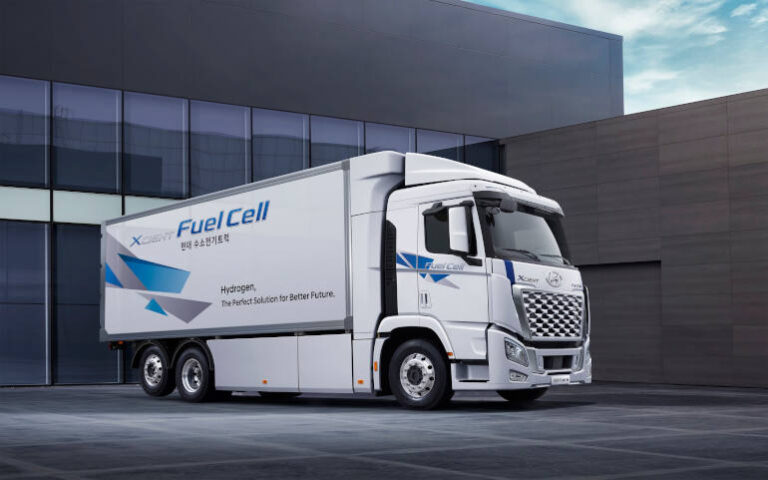Hydrogen-powered heavy vehicles have taken a major step forward in Australia, with Coregas becoming the first local operator to put Hyundai’s XCIENT Fuel Cell Truck into daily service.
Coregas, part of the Nippon Sanso Group, will integrate the truck into its logistics network, transporting industrial, medical, and specialty gas cylinders to customers across Australia. The move builds on Coregas’ existing leadership in hydrogen mobility, following the launch of its H2Station in Port Kembla – the nation’s first hydrogen refuelling station for heavy transport.
Why this matters for fleets
The XCIENT is one of the world’s first hydrogen-powered heavy-duty trucks and has already clocked more than 10 million kilometres in real-world operations across Europe and Asia. For Australian operators, the appeal lies in its ability to deliver diesel-like performance with zero tailpipe emissions.
Key specs for the 4×2 configuration include:
- Gross Vehicle Weight (GVW): 19.5 tonnes (GCW 38 tonnes)
- Hydrogen tank capacity: 31 kg @ 350 bar
- Fuel cell output: 180 kW (2 × 90 kW stacks)
- Battery capacity: 72 kWh
- Range: up to 400 km (based on European testing)
- Refuelling time: 8–20 minutes (350 bar station)
For fleets running high-utilisation schedules, those refuelling times are a major advantage over battery-electric alternatives, keeping trucks on the road and avoiding lengthy charging stops.
A partnership of first movers
Hyundai Motor Company Australia CEO Don Romano said the milestone shows hydrogen mobility is moving “beyond concepts and trials into real-world operations.”
Coregas Executive General Manager Alan Watkins described the partnership as proof that hydrogen is ready for heavy transport applications, with Coregas proud to be the first operator to take the leap.
Implications for the industry
Hydrogen trucks are still at an early stage in Australia, but this collaboration between Hyundai and Coregas provides a critical proof point. It shows hydrogen can work in day-to-day fleet operations while offering a pathway to decarbonise without compromising range or payload.
For fleet managers, the lessons from Coregas’ rollout will be closely watched. Insights from the trial will help guide future investment decisions, influence policy development, and build industry confidence in hydrogen as part of the heavy transport energy mix.
Looking ahead
The XCIENT’s arrival is part of Hyundai’s broader plan to support Australia’s shift to cleaner freight solutions. Combined with Coregas’ hydrogen infrastructure, it demonstrates that the technology is ready to be tested under Australian conditions.
As fleets face increasing pressure to reduce emissions and prepare for Net Zero Vehicle Emissions Standards, hydrogen fuel cell trucks like the XCIENT could become an important option alongside battery-electric and biofuels.






